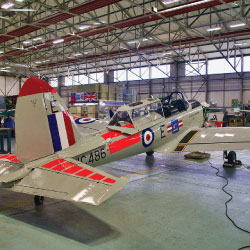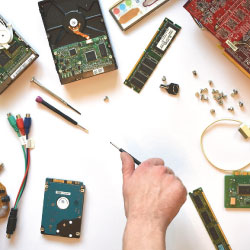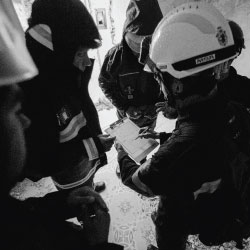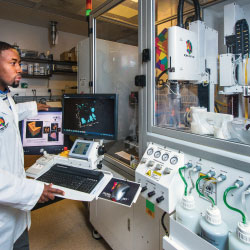Processing Request...
Processing Request...

Engineering is a section of technology and science that focuses on the design of engines, machines, structures and electrical systems. Engineering is deeply rooted in mathematics principles. Engineering is also a very broad topic. There are many subsets of engineering that make up the discipline. Engineers can work in careers ranging from astronauts to food production engineers. There are three major branches of engineering: civil engineering, chemical engineering and mechanical engineering.
View Courses
Marine engineers are involved with the design, construction, installation, operation, maintenance and repair of the main propulsion engines and auxiliary machinery and systems found in all kinds of ships, boats and offshore installations. Depending on the job, they may also be responsible for everyone working in the engine room. Professional engineers are often supported in their work by engineering technicians.
View Courses

Aircraft maintenance relates to the inspection, repair, modification, replacement and overhaul of aircraft equipment to ensure that an aircraft is in optimal condition and most importantly, safe for flying.
View Courses

The Automotive course is offered as a specialization of Mechanical Engineering, covering the areas of automotive design, vehicle dynamic and structure, power and transmission (power train), vehicle aerodynamic, electronics, ergonomics, automotive material and production. Hence, graduates of this course would fulfill the need for engineers in the field of Mechanical Engineering as well as the automotive field specialization.
View Courses

Materials engineers investigate how different materials can be most usefully applied in society, whilst manufacturing engineers take raw materials and basic components and turn them into products.
View Courses

Chemical Engineering focuses on the application of engineering principles to the design, construction and operation of industrial processing plants. Petroleum engineering involves searching, extracting and processing crude oil and natural gas from the earth using safe, cost-efficient and environmentally-friendly methods.
View Courses

Civil engineering is a professional engineering discipline that deals with the design, construction, and maintenance of the physical and naturally built environment, including public works such as roads, bridges, canals, dams, airports, sewerage systems, pipelines, structural components of buildings, and railways. Quantity Surveying deals with estimating and managing construction costs to ensure value for money, while meeting the required building standards and quality at the same time.
View Courses

Instrumentation Engineering is a specialised branch of Electrical and Electronics Engineering, primarily focussing on the principles and operations of measuring instruments used in the design and configuration of automated systems.
View Courses

A study in the areas of telecommunication engineering which covers the structure of mobile computing systems, telecommunication systems & networks, and software systems. The technical skills to cover the ever demanding expertise in the fields of microwave and optical Transmission, satellite communications and RF communications.
View Courses

Robotics and mechatronics engineers design devices and the programs that control those devices. They’re adept at handling vast amounts of data and creating systems that make sense of data in real time so that a fully automated manufacturing facility can operate safely and efficiently, or a car can drive completely autonomously.
View Courses

Occupational safety and health (OSH), also commonly referred to as health and safety, occupational health and safety (OHS), occupational health, or occupational safety, is a multidisciplinary field concerned with the safety, health, and welfare of people at work. These terms also refer to the goals of this field, so their use in the sense of this article was originally an abbreviation of occupational safety and health program/department etc.
View Courses

Environmental engineering is a professional engineering discipline that takes from broad scientific topics like chemistry, biology, ecology, geology, hydraulics, hydrology, microbiology, and mathematics to create solutions that will protect and also improve the health of living organisms and improve the quality of the environment.
View Courses

Biotechnology is the use of living systems and organisms to develop or make useful products, or "any technological application that uses biological systems, living organisms or derivatives thereof, to make or modify products or processes for specific use". Biomedical engineering is mainly concerned with the facts, theories and models describing biological and clinical phenomena. It is the most widely applied in development of engineering solutions to both biological and clinical areas.
View Courses


Take our free psychometry test to discover your passion and potential!
Try It Now!

Book a campus tour through us!
Book Now!

Submit your result to Edumetry, and a list of scholarship that is eligible for your result will be filtered out for you!
Match Now!